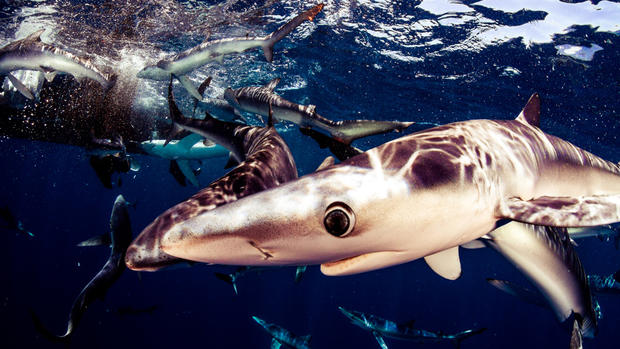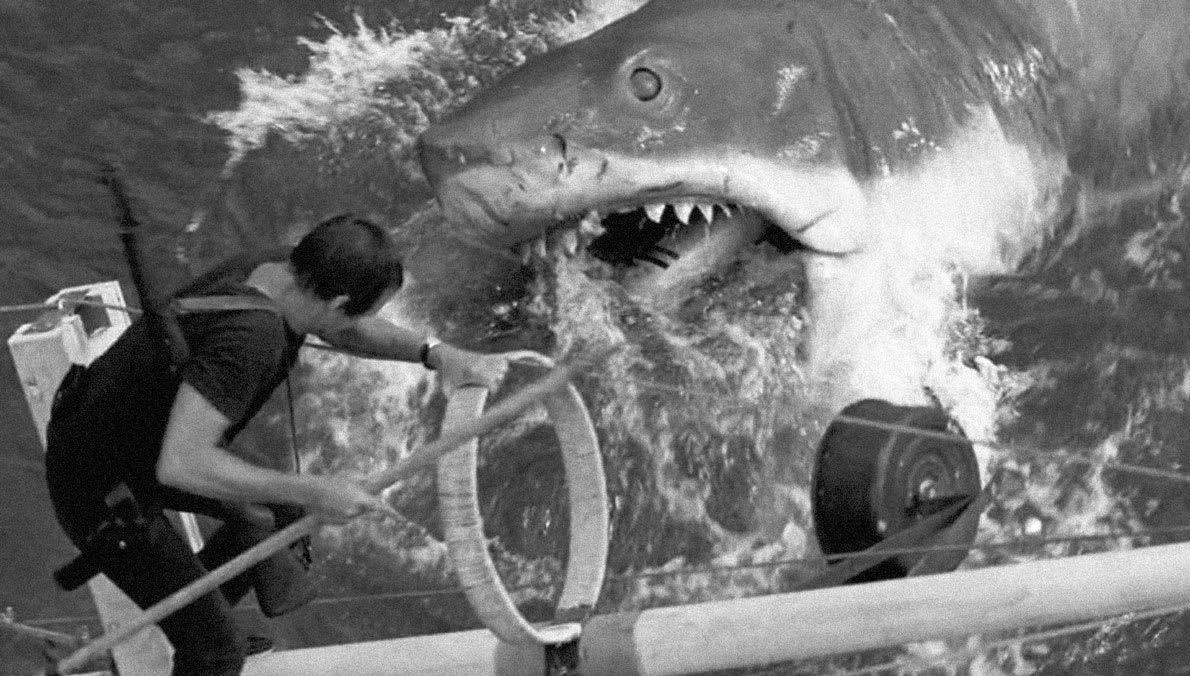Nature up close: Sharks
By “Sunday Morning” contributing videographer Judy Lehmberg.
In 2008 I was lucky enough to live in an apartment overlooking the ocean in Cape Town, South Africa. While there I visited Two Oceans Aquarium. I stared into the eyes of a big shark and saw nothing except darkness.
Sharks can be difficult to relate to. Maybe that is part of the whole “Jaws” problem -- that and the whole very toothy mouth problem. Many of us think of sharks as gigantic, ruthless killers. They are indeed predators, but their reputation for killing humans is greatly exaggerated.
Next to the shark exhibit in Cape Town’s aquarium, a video was playing in which a woman looked out into the ocean and screamed. Other beachgoers looked out to sea and began screaming and running away from the beach. There was what appeared to be a fin sticking out of the water. But it wasn’t a shark. As it got closer the viewer could see a toaster floating at an angle. A toaster? Then, as scared people look out to sea, an unseen voice boomed, “Faulty toasters killed 791 people last year; sharks killed nine. People kill over 100 million sharks a year.”
Sharks don’t have much obvious charisma, but they are an essential part of a healthy ocean ecosystem. So why are we killing more than 100 million of them every year? The answer is mostly for shark fin soup. We all know sharks have a reputation for being cruel, heartless killers, but in this case that honor goes to the hunters who catch sharks, cut off their fins and dump them back into the ocean to die -- for soup! Killing 100 million sharks a year is not sustainable.
- Shark fin soup demand deeding extinctions
- Conservation body bolsters shark fin trade regs
- Shark fin trade: Why it should be banned in the United States (Oceana)
- Shark Advocates International
Sharks are relatively slow-growing, take years to reach sexual maturity, produce low numbers of offspring, and have long gestation times. All of those characteristics result in a slow reproduction rate. Also, because they are apex predators, their decline has meant an increase in their prey population, particularly rays along the U.S. Atlantic coast and grouper in the Caribbean. The cow-nose ray eat bay scallops, oysters, soft-shell clams and hard clams. As these bivalves decline, so does water quality because there are no longer as many filter-feeders cleaning the water. The decreased water quality thus leads to increased algal blooms and dead zones.
In the Caribbean, the increase in grouper numbers results in a decrease in their prey, parrot fish, which typically eat algae from coral reefs. The increased algae populations smother the coral animals.
This change in animal numbers throughout the food chain is known as a trophic cascade. As the top predators (like sharks) decline, a cascade of negative effects ripples through the entire ecosystem.
Sharks are not only necessary to maintain marine ecosystems; they are also a wonder of evolution. Dating back at least 425 million years, they have survived three times longer than dinosaurs and hundreds of times longer than humans. Sharks are ancient, but they aren’t primitive. They are superbly adapted predators.
Some of their adaptations include:
Ampullae of Lorenzini - These small, jelly-filled pores on sharks faces, particularly in the snout area, are electroreceptors, giving sharks a sixth sense that enables them to detect electrical activity at the cellular level. They know when another potential prey animal is nearby, even in dark or murky water.
A skeleton made of cartilage, not bone - This allows them to be extremely maneuverable in water.
A third eyelid - This nictitating membrane is used to protect their eye as they close in on potential prey.
Sharks don’t evoke the same warm feeling as koalas and pandas in most people, but perhaps a respect for their ecosystem roles will increase our desire to protect them.
In the meantime, watch out for those toasters!
Judy Lehmberg is a former college biology teacher who now shoots nature videos.
For more info:
- Judy Lehmberg (Official site)
- Judy Lehmberg’s YouTube Channel
To watch extended “Sunday Morning” Nature videos click here!





